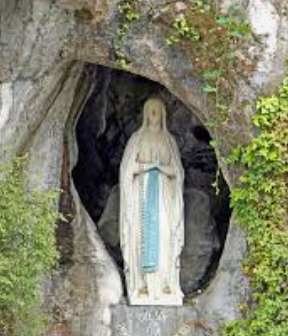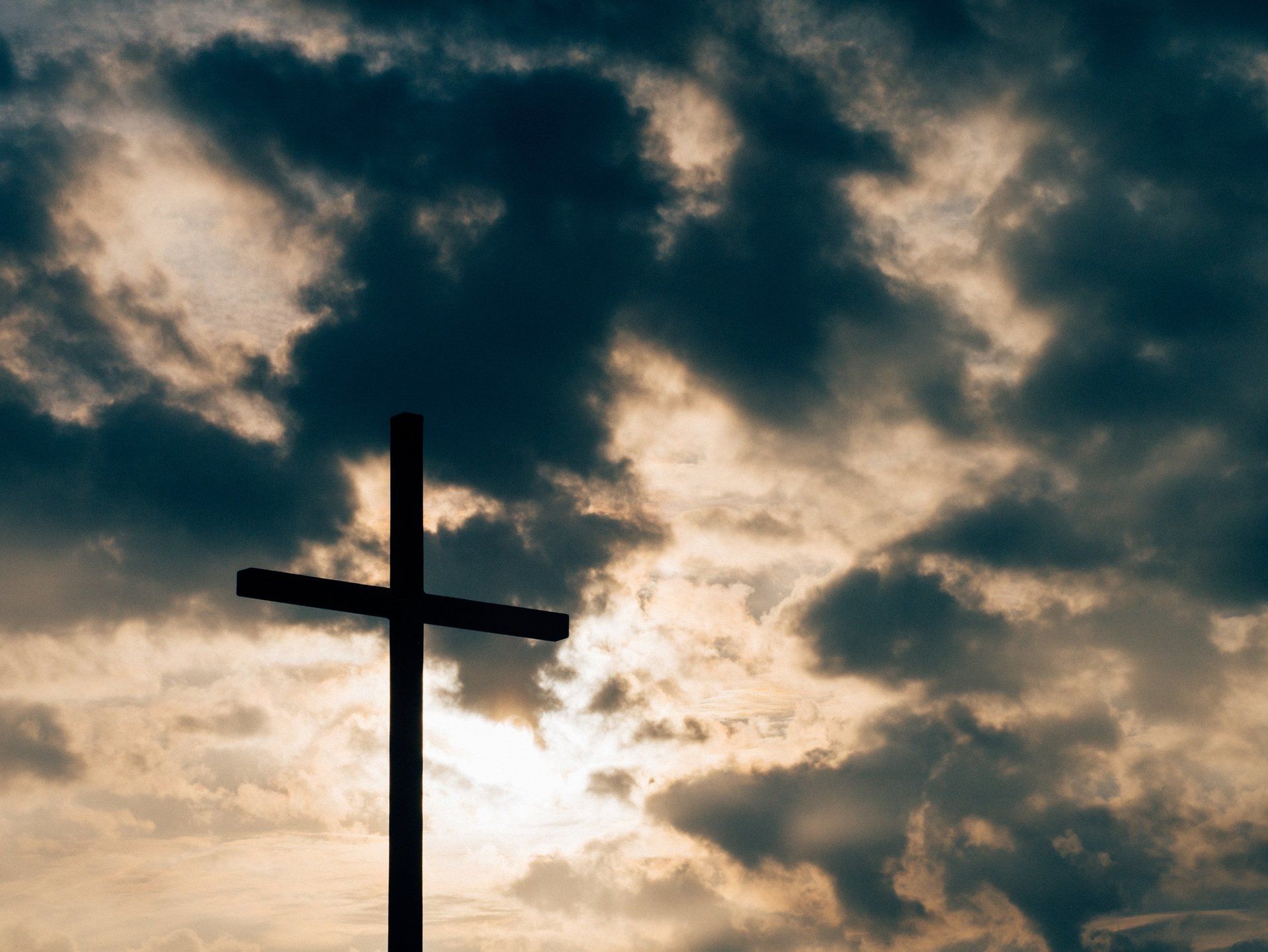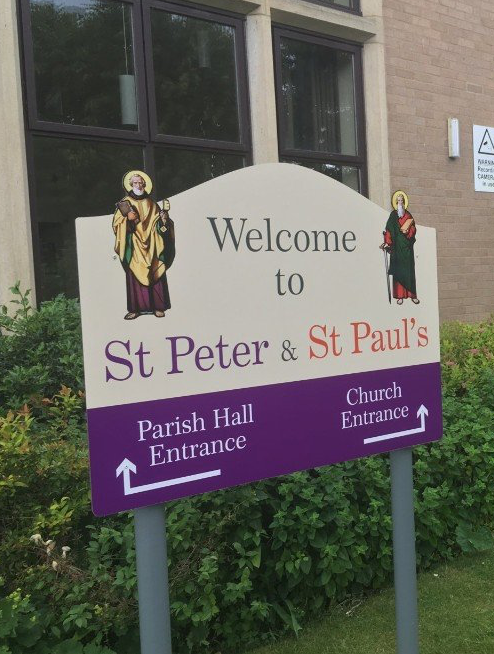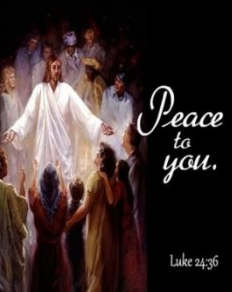







For the first few weeks of each year, once the Christmas season is over, the second readings during Catholic Sunday liturgies are taken from Paul’s First Letter to the Corinthians. In year A, we hear seven passages from the first part of the letter in which, after the greeting with which he begins, Paul struggles to deal with the quarrels and divisions in the community in Corinth which have been reported to him by Chloe’s people (1 Corinthians 1:11). At the time of writing, he is away in Ephesus and in his absence he was feeling, ‘the daily pressure upon me of my anxiety for all the churches’ (2 Corinthians 11:28). Thanks to this crisis, we are able to enter into the mind of Paul as a theologian, to learn something of his genius as a pastor and to admire his abilities as a writer. We can approach the passages selected for liturgical reading by concentrating on the contrasts which emerge in each.
1 Corinthians 1:1-3 – The Greeting [Sunday 2A]
Paul begins all his letters with a greeting. The contrast which we may note is between the two worlds which he inhabited. The convention in his time was to introduce a letter with the name of the sender and the name of the recipient, and to conclude with a wish for benefits such as good health. Paul follows this custom, but he also refers to another unseen world. In this world, God is preeminent. God for Paul is one, in contrast to the ‘many gods and many lords’ acknowledged in a pagan city like Corinth (1 Corinthians 8:5-6). This God is Father and it was his will to call Paul to be an apostle. Four times in this introduction Paul mentions Jesus Christ. Here, as frequently in his letters, Paul identifies Jesus with the Christ, the Messiah whom Israel expected (Romans 9:5). Twice in this greeting, he calls him ‘Lord’. For Paul, Jesus’s lordship contrasts with that of the emperor in Rome, who claimed to be Lord of the vast Roman world whose representative was governor in Corinth (Acts 18:12). As for the Corinthians, they too were called. They were called to be saints, a holy people set apart for the service of God, as were believers elsewhere who also called on the name of Jesus. Paul’s wish for them was for grace and peace: grace referred to the free gift that God offered them in Christ (Romans 3:24); peace was the state of reconciliation that existed between them and God because of the work of Christ (Romans 5:1, 11). This greeting is a call to us to recognise that this unseen world of Paul is a world in which we also live.
1 Corinthians 1:10-13, 17 – The Problem [Sunday 3A]
Our second extract from the letter begins with a verse which defines the problem that dominates all the passages which we hear from this letter in this Year A of the Lectionary cycle.
“Now I appeal to you, brothers and sisters, by the name of our Lord Jesus Christ, that all of you be in agreement and that there be no divisions among you, but that you be united in the same mind and in the same purpose. (1:10)”
The contrast in this paragraph is obvious. On the one hand, following his custom illustrated in his first letter that survives (1 Thessalonians 2:1), Paul addresses the Corinthians as ‘brothers and sisters’ (in Greek: adelphoi ). Paul understands that because of what Christ has achieved through his death and resurrection, we are now children of God and co-heirs with Christ (Romans 8:17). A family is to be united in the same mind and the same purpose. Such unity is to be rooted in Christ; elsewhere Paul urges the Roman community, ‘Welcome one another, as Christ has welcomed you, for the glory of God’ (Romans 15:7). But divisions occur in every family. In Corinth , believers were not appealing to Christ so much as to their particular teachers – to Apollos, to Cephas (more commonly known as Peter), even to Paul. They were setting them up as rivals. Apollos is described in the Acts as, ‘powerful in the scriptures’ (Acts 18:24). He came from Alexandria in Egypt, whose most famous son, Philo, stressed the philosophical heritage of Judaism. Apollos’s Christianity would have appealed to the philosophers among the Corinthians. Peter had been rebuked by Paul in Galatians for a compromised interpretation of the Jewish Law (Galatians 2:11-14) – perhaps he still clung to Jewish practices which Christ had made obsolete. Our paragraph concludes with an appeal to Christian basics, to the cross of Christ. This is where Paul’s preaching began; as he wrote to the Galatians, ‘before your eyes Jesus Christ was publically crucified’ (Galatians 3:1). The passage is an invitation for us to look again at the crucifix which rests on all our altars and is displayed in all our churches.
1 Corinthians 1:26-31 – ‘In Christ’ [Sunday 4A] [1]
The contrast in this third passage is between the Corinthians themselves and Christ. Three points are made about each. The Corinthians are described as, ‘not many wise according to worldly standards, not many powerful, not many of noble birth’. Paul speaks of ‘not many’, because there were exceptions. We read in the letter to the Romans which was written from Corinth that Gaius had a house large enough to host Paul and the whole church, and that Erastus, ‘the city treasurer’ was a believer (1 Corinthians 1:14; Romans 16:23); but many of the Corinthians were slaves and from the lower classes of society (7:21). In this same paragraph, three titles are given to Christ: he is ‘our righteousness, our sanctification and our redemption’. Thanks to Christ, we can stand innocent and acquitted before God, we may live a life of holiness because we have been delivered from the tyranny of sin. These two contrasting groups of three are brought into harmony by a clause that separates the two lists: God is ‘the source of your life in Christ’ ; we met this same expression in the greeting where the Corinthians were said to be ‘sanctified in Christ ’ (1:2). ‘In Christ’ refers to the close union that exists between Christ and the Christian. We read elsewhere in Paul, ‘If anyone is in Christ , one is a new creature’ (2 Corinthians 5:17). Those who live in Christ have riches enough and make this their boast.
1 Corinthians 2:1-5 – The Mystery of God [Sunday 5A]
This passage begins with Paul speaking emphatically about himself; the Greek text begins, ‘And I’. Again, Paul argues through contrasts. The contrast in the previous paragraph was between the Corinthians and Christ. Here the contrast is between Paul himself and God, or rather certain attributes of God. He speaks at his most personal, admitting that when he began his mission in Corinth, he experienced, ‘weakness, much fear and trembling’. Later, in 2 Corinthians, he would quote his opponents as saying, ‘His bodily presence is weak and his speech contemptible’ (10:10). His message, too, was a scandal; it was about ‘Jesus Christ, and him crucified’. In that Roman world, horrified disgust was the response to the very word ‘crucifixion’. The Roman lawyer, Cicero, referred to it as an atrociously cruel form of execution, intolerable for a respectable citizen of Rome.
On a human level, Paul could anticipate little progress in his task of preaching such a gospel in a city vibrant with commerce and thronged with the idols and temples of popular religion. His mission would seem to be doomed and impossible, but this was to underestimate the power of God and the Spirit of God. God is mentioned at the beginning and end of our passage. The beginning refers to the mystery of God; such a mystery is not one that can be solved, but refers to a truth that always has something new to reveal. At the end of Romans, Paul refers to his gospel as, ‘the revelation of a mystery that was kept secret for long ages, but is now disclosed’ (16:25). Paul is repeating here what he had written to the Thessalonians , how his gospel came to them, ‘in power and in the Holy Spirit and in full conviction’ (1 Thessalonians 1:5). It was a mystery profounder than any human teaching, whether of Apollos, of Cephas or even of Paul himself.
1 Corinthians 2:6-10 – Wisdom Secret and Hidden – [Sunday 6A]
Paul continues to draw contrasts; the contrast in this paragraph is between two types of wisdom. Apollos could say much about wisdom (1:12). Sages from Alexandria, like Apollos, would speak with authority about the wisdom attributed to Solomon in the wisdom books of the Old Testament, and were familiar with the wisdom of Plato and other Greek philosophers. Paul had to preach another type of wisdom, that of the crucified ‘Lord of glory’. He speaks of this wisdom in similar language, which we have heard him use of mystery in the letter to the Romans: God had decreed it before the ages for our glory. As one who, ‘advanced in Judaism beyond many of my people of the same age, for I was far more zealous for the traditions of my ancestors’ (Galatians 1:14), he finds evidence for this new wisdom in the prophet Isaiah. No eye, ear or heart had conceived this new wisdom which would be revealed in the cross. Prophets like Isaiah spoke their divine message because they were inspired by the Spirit (Isaiah 61:1). This same Spirit was teaching a new wisdom which those who were spiritual and mature could grasp. However, the Corinthians, as Paul would shortly argue, were still people ‘of the flesh’ and not of the Spirit (3:1). People who belong to the Spirit do not allow jealousy and quarrelling to wreak havoc in their communities, such as Chloe’s people were reporting (1:11; 3:3). The Spirit enables them to search ‘the depths of God’.
1 Corinthians 3:16-23 – Temple of the Holy Spirit [Sunday 7A]
In the initial greeting, the Corinthians were described as the church of God (1:2). Paul might have had in mind the Hebrew word which ‘church’ translates, the qahal which God formed of the Israelites in the wilderness centuries before, when they became the people of God (Exodus 19:6). Now Paul gives them another title which brings us to consider another contrast: he calls them the temple of God. Just as they had to learn a new definition of wisdom, they also had to learn about a new type of temple. Gentile converts among them had frequented the many temples in the city, dedicated to various deities where many idols were worshipped (8:7). Converts such as Crispus from Jewish synagogues (1:14; Acts 18:8) would treasure the temple in Jerusalem where daily sacrifices to God still continued; its destruction by the Roman legions lay sixteen years ahead. They themselves, said Paul, were now the temple of God’s Spirit and, in another echo of his initial greeting, he reminds them of its holiness (1:2). Such a temple was not to be divided. Divisions would drive the Holy Spirit out of its temple. This Spirit was greater than any individual, even than Paul, Apollos or Cephas . All belonged to this temple, rather than members of the temple belonging to them. And all belonged to Christ, just as Christ belonged to God. This is a consequence of the new type of wisdom which the Spirit brought. Paul finds scriptural witness to this new wisdom in the words of Job (5:13) and of the Psalmist (94:11).
1 Corinthians 4:1-5 – Stewards of God’s Mysteries [Sunday 8A]
God begins and concludes this paragraph. Christ is mentioned, too; he is the Lord who, in his role of judge, will come and bring into the light all that is hidden. The contrast that marks this passage is the distinction between human and divine judgment. For Paul, we live in the interim between the resurrection of Christ and his Parousia (1 Thessalonians 1:10). Paul will not escape judgment; he knows that even he runs the risk of disqualification in the race that he was running (9:27). He had introduced himself as an apostle (1:1), but now, writing in the plural, he identifies himself with Apollos and Cephas, as ‘stewards of the mysteries of God’. They were workers in God’s garden: ‘I planted, Apollos watered, God gave the growth’ (3:5). They were builders of God’s house: ‘Like a skilled master builder, I laid a foundation, and someone else is building on it’ (3:10). This word, steward (Greek: oikonomos ), is used in Romans to describe Erastus whom the NRSV translation calls ‘the city treasurer’. We read in Luke the parable of the ‘unjust steward’ who mishandled his master’s cash (Luke 16:1, 8) and was brought before his master to account for his conduct. This warning that we will all stand before the judgment seat of God (Romans 14:10) serves not only as a defence of Paul’s apostolic authority but as a further appeal to the Corinthians to put an end to their divisions and quarrels.
We may conclude with some general points. This letter was written earlier than any gospel: it is usually dated around 54 AD; the first gospel, that of Mark , around 70 AD. It is therefore a much earlier witness to the Christian life than we read in the gospels.
Our readings have introduced us to 40 of the 91 verses of the first four chapters of the letter. We should read the other 51 and ask ourselves whether the lectionary editors have chosen the most significant and helpful verses. We will hear the middle section of the letter in Year B and the final section in Year C. This conclusion teaches mainly about the resurrection; it is therefore important to know the letter as a whole, otherwise we risk our spiritual lives being dominated by the cross rather than by the totality of the gospel message, which includes both cross and resurrection (1 Corinthians 15:3-5). We should also find time to read through Acts 18:1-17 which is Luke’s account of Paul’s mission in Corinth which was composed much later, in the 80s.
Finally, we can sum up what we have learnt on these seven Sundays about Paul. We have met him as a theologian: he has taught us about God, about Christ and about the Holy Spirit. He has taught us about the Church, as represented by the Corinthians. He has taught us about Christian doctrine in his remarks about mystery and wisdom, and judgment too. We have met Paul as a pastor: he has encouraged and challenged the Corinthians about their way of life as individuals and in community. We have met him as a writer: we have enjoyed his skill in structuring his message in contrasts, his range of vocabulary, the vividness of his imagery, his skill in quoting Scripture. When these seven weeks with 1 Corinthians are complete, we begin the season of Lent and Easter. When we resume the ‘Sundays of Year’, we will hear passages from Paul’s Letter to the Romans, his supreme achievement. This is a delight in store.
Peter Edmonds SJ is a member of the Jesuit community in Stamford Hill, North London.
[1] This year, the Feast of the Presentation of the Lord on 2 February falls on a Sunday, and so the readings for the Fourth Sunday of Year A, including this passage from 1 Corinthians, are replaced by the readings of the Feast.







